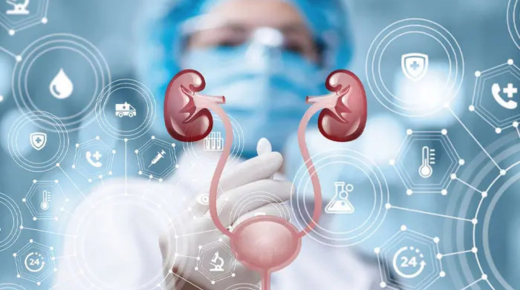1. Introduction to Allergy Immunotherapy
Allergy immunotherapy, also known as desensitization or hypo-sensitization, involves gradually exposing the immune system to increasing amounts of an allergen. This treatment aims to reduce or eliminate allergic reactions over time.
2. How Allergy Immunotherapy Works
Immunotherapy helps the immune system become less sensitive to allergens. It is commonly administered through injections (allergy shots) or sublingual tablets. The process typically spans several years, with the goal of long-term allergy relief.
3. Common Side Effects of Immunotherapy
Like any medical treatment, allergy immunotherapy can cause side effects. Common side effects include localized reactions such as redness, swelling, and itching at the injection site or under the tongue.
4. Local Reactions at the Injection Site
Local reactions are the most common side effects of allergy shots. These reactions include redness, swelling, and itching at the site of the injection. They are generally mild and resolve within a few hours.
5. Systemic Reactions
Systemic reactions are less common but can occur. These reactions affect areas of the body other than the injection site and can include symptoms like sneezing, nasal congestion, hives, and swelling.
6. Anaphylaxis: A Severe Reaction
Anaphylaxis is a rare but serious side effect of allergy immunotherapy. It is a severe allergic reaction that can cause difficulty breathing, swelling of the throat, a rapid drop in blood pressure, and loss of consciousness. Immediate medical attention is required.
7. Managing Local Reactions
To manage local reactions, applying a cold compress to the injection site can help reduce swelling and discomfort. Over-the-counter antihistamines may also alleviate itching and redness.
8. Monitoring for Systemic Reactions
Patients undergoing allergy immunotherapy should be monitored for systemic reactions, especially during the early stages of treatment. Any unusual symptoms should be reported to a healthcare provider immediately.
9. Delayed Reactions
Delayed reactions can occur several hours after the immunotherapy session. These reactions might include fatigue, mild fever, or an increase in allergy symptoms. They are typically mild and resolve on their own.
10. Gastrointestinal Side Effects
Sublingual immunotherapy can cause gastrointestinal side effects such as itching or swelling in the mouth, throat irritation, nausea, and abdominal pain. These symptoms usually diminish with continued treatment.
11. Respiratory Symptoms
Some patients may experience respiratory symptoms such as coughing, wheezing, or shortness of breath. These symptoms should be reported to a healthcare provider, as they may indicate a more serious reaction.
12. Eczema Flare-Ups
Patients with eczema may experience flare-ups as a side effect of immunotherapy. Managing eczema with moisturizers and topical treatments can help reduce these reactions.
13. Fatigue and Tiredness
Fatigue and tiredness are possible side effects of allergy immunotherapy. These symptoms are usually mild and temporary, resolving as the body adjusts to the treatment.
14. Headaches
Headaches can occur as a side effect of immunotherapy, particularly with sublingual tablets. Staying hydrated and using over-the-counter pain relievers can help manage this symptom.
15. Dizziness and Lightheadedness
Some patients may feel dizzy or lightheaded after receiving allergy shots or taking sublingual tablets. Resting and staying hydrated can help alleviate these symptoms.
16. Skin Rashes
In rare cases, immunotherapy can cause skin rashes or worsening of existing skin conditions. It’s important to monitor skin changes and consult a healthcare provider if new rashes develop.
17. Managing Side Effects with Medications
Over-the-counter medications like antihistamines, decongestants, and pain relievers can help manage minor side effects of immunotherapy. Always consult with a healthcare provider before taking new medications.
18. Adjusting Dosages
If side effects are severe or persistent, the healthcare provider may adjust the dosage or frequency of the immunotherapy. This can help reduce side effects while maintaining the effectiveness of the treatment.
19. Importance of Adherence to Treatment Schedule
Adhering to the immunotherapy schedule is crucial for the success of the treatment. Skipping doses or stopping treatment prematurely can reduce its effectiveness and may increase the risk of side effects.
20. Communication with Healthcare Providers
Open communication with healthcare providers is essential during immunotherapy. Patients should report any side effects, no matter how minor, to ensure proper management and adjustment of the treatment plan.
21. Long-Term Side Effects
Most side effects of immunotherapy are short-term, but long-term side effects are possible. Regular follow-ups with a healthcare provider can help monitor and manage any ongoing issues.
22. Benefits vs. Side Effects
While immunotherapy can cause side effects, its benefits often outweigh the risks for many patients. The potential for long-term relief from severe allergies can significantly improve quality of life.
23. Patient Education and Support
Patient education and support are crucial for those undergoing immunotherapy. Understanding the potential side effects and how to manage them can help patients stay committed to their treatment plan.
24. Considering Alternatives
If immunotherapy side effects are too severe or persistent, patients may need to consider alternative treatments. Other options include allergy medications, lifestyle changes, and avoidance strategies.
25. Conclusion and Final Thoughts
Allergy immunotherapy is an effective treatment for many people with severe allergies. While it can cause side effects, proper management and communication with healthcare providers can help minimize these reactions, allowing patients to experience the long-term benefits of reduced allergy symptoms.





